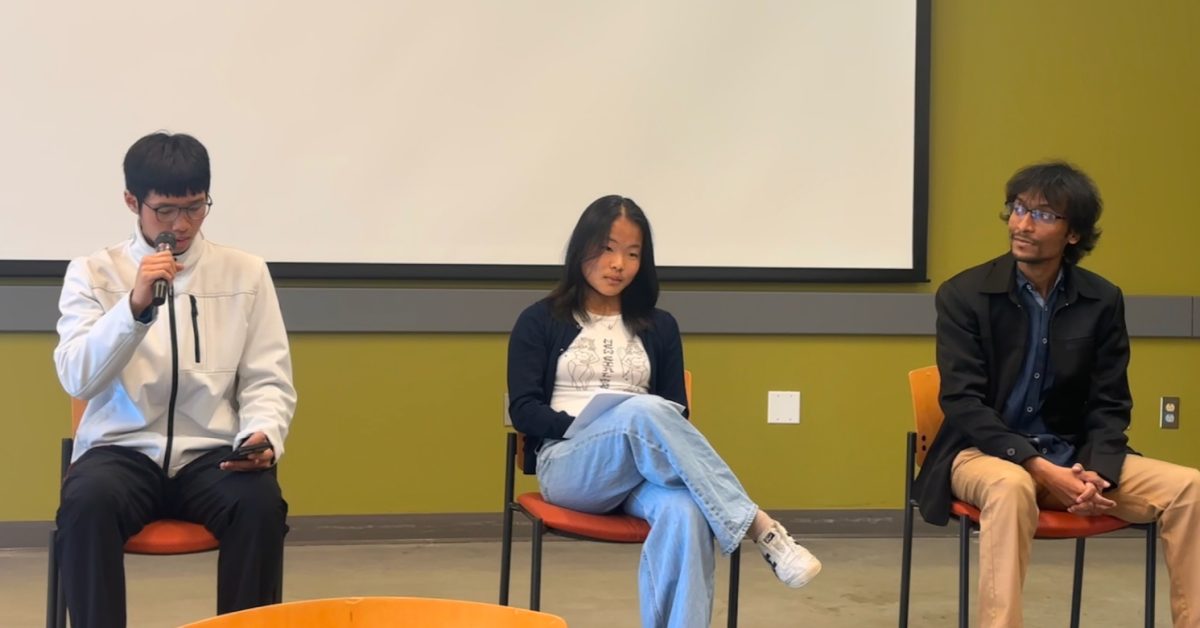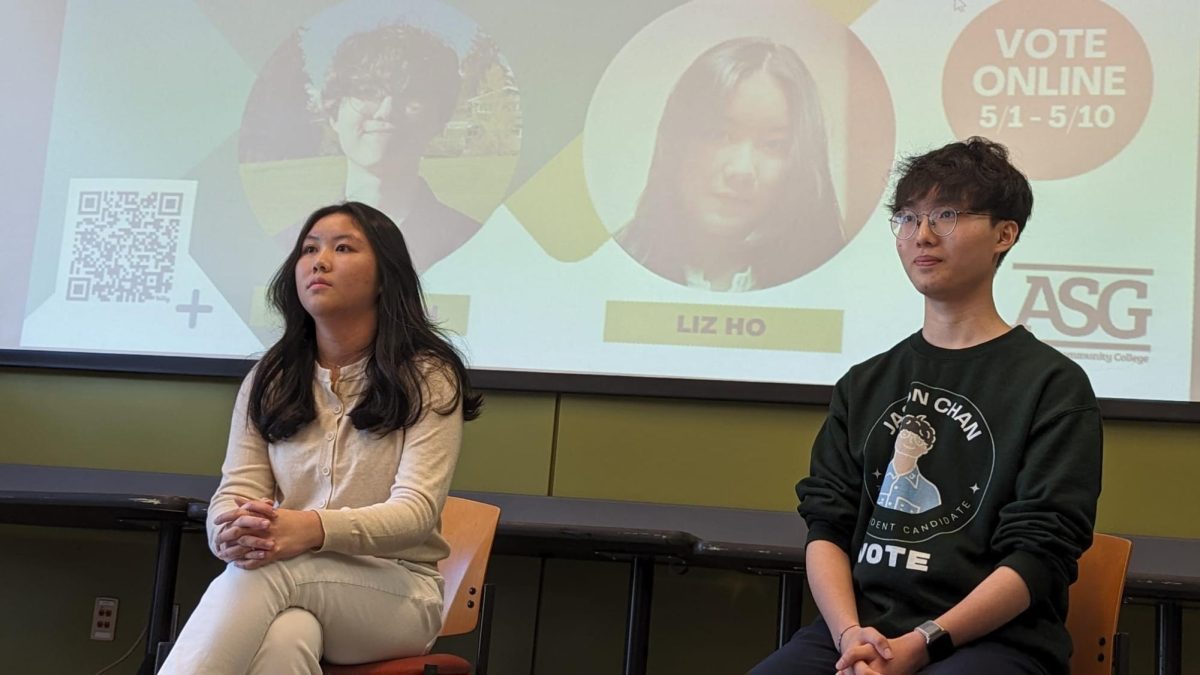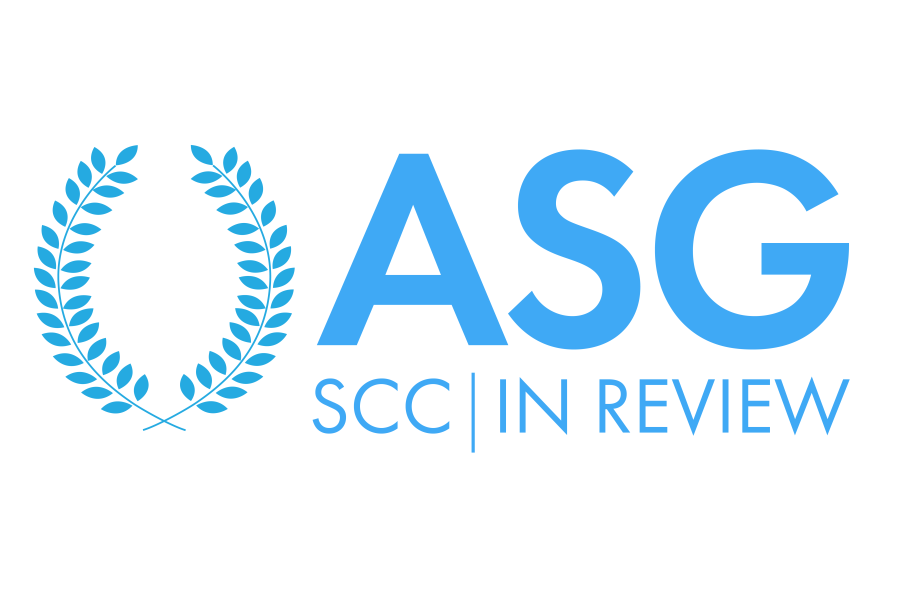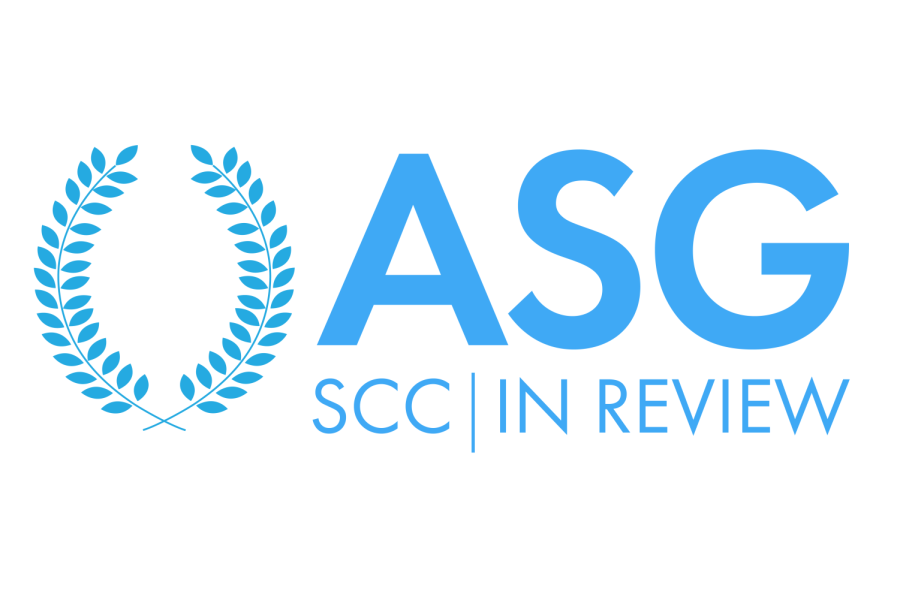The Associated Student Government (ASG) usually holds meetings in the Boardroom of the 1000 Building. This time it was moved to Room 9208 in the PUB (the Quiet Dining Room) due to a scheduling conflict. This was the last meeting of the fall quarter.
Recognition
Shoreline Game Audio Club
Student Brian Sullivan gave a slightly nervous yet impassioned speech about bringing a Game Audio Club to SCC. According to Sullivan, Seattle is a hotbed for careers in this industry. He plans to utilize this by creating a club that opens doors and “prepare(s) students for when those doors are open.”
He broke down the potential schedule of the club’s weekly meetings: the first half will have a presentation by an actively employed professional or a student with an interesting idea, while the rest of the meeting will be discussing that topic more generally among the members. Sullivan hopes to hold two field trips per quarter.
ARC Committee Members
A list of 15 students for the Appointment Review Committee was approved after being presented by Angel Gonzalez, the assistant director for Student Life. The committee’s purpose is to assess teacher candidates for tenure.
Mini-Grants
Anime Club
The first mini-grant was proposed by Pakhim Chung of the Anime Club. In an attempt to gain new members, the club will be holding an event called the Anime Club and Game Culture Festival. They plan to have five sections of activities, ranging from a quiz show to a musical guessing game, and even includes a cosplay competition.
After a quibble about where to get posters (Sustainability Officer Brian Tansil suggested using the free poster-making materials in Student Life), the ASG decided to table the discussion until the first meeting of Winter Quarter so that the Anime Club could smooth out some details about where the funding would go.
Requested: $2224.71
Granted: $0
Model United Nations Club
President Sujah Sial presented the final item on the agenda. The Model United Nations (MUN) Club requested a trip to attend the National Model United Nations conference in New York from March 24-28. Hoping to take 12 students and two advisors, they reduced their original request by $1,890 and offered a flexible plan to the ASG for approval.
The ASG proposed that the MUN Club “recreate the framework in the Pacific Northwest, in order to include more people.” A discussion about whether it was equitable to fund this request ensued.
Tech Affairs Officer Isaac Tchao brought up the idea that this request would benefit comparatively few students. He also described how DECA sells tubs of cookie dough to raise money, and how doing that over time makes it so the ASG can trust DECA. Sial mentioned that the MUN Club was mimicking DECA in certain ways regarding fundraising, like by filtering people out and having its members pay delegation fees.
“It’s not all about money,” Club Affairs Officer Eneya Kwesele said. “And playing your part also involves doing the research, going to multiple events — not just starting from the top, but working your way up steadily.”
She also said that fundraising shows that a club is actually passionate about an event and are willing to be flexible.
Eventually the ASG denied the request, and asked the MUN Club to give them updates on what they are doing to make an impact to help secure future mini-grants. As the club is fairly new, it was decided that they should focus on smaller, more local events like February’s Northwest Model UN Conference in Portland, OR.
Requested: $21,661
Granted: $0






